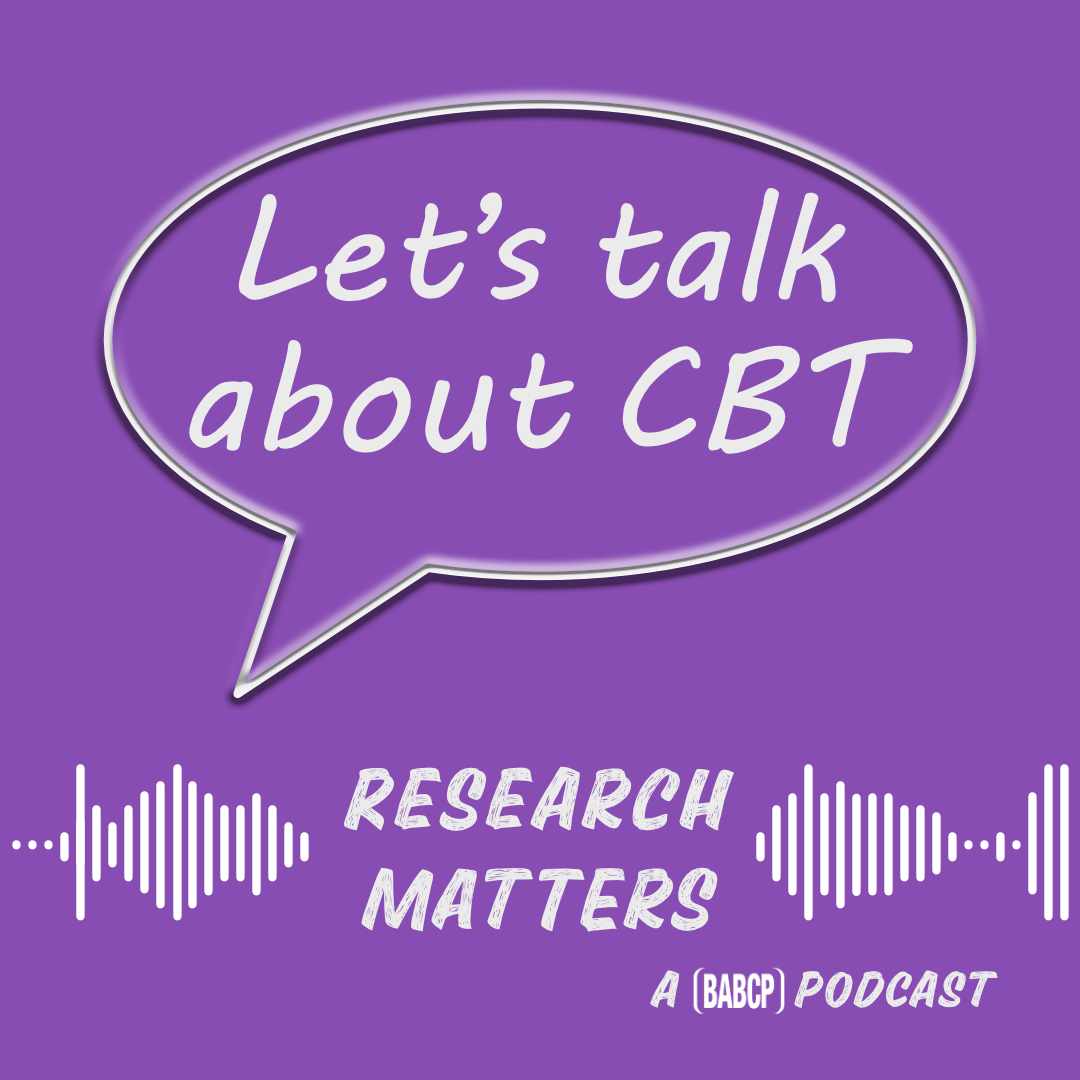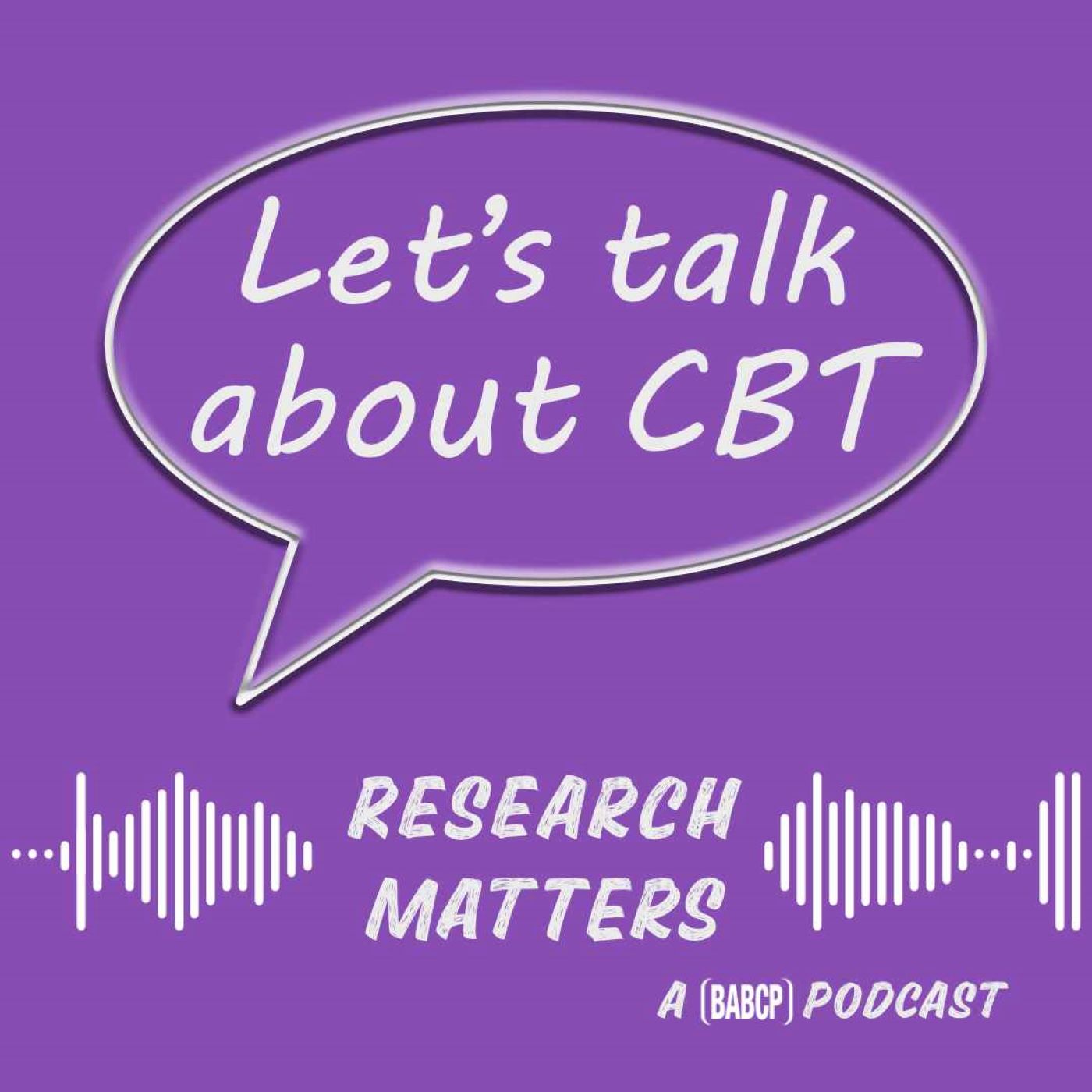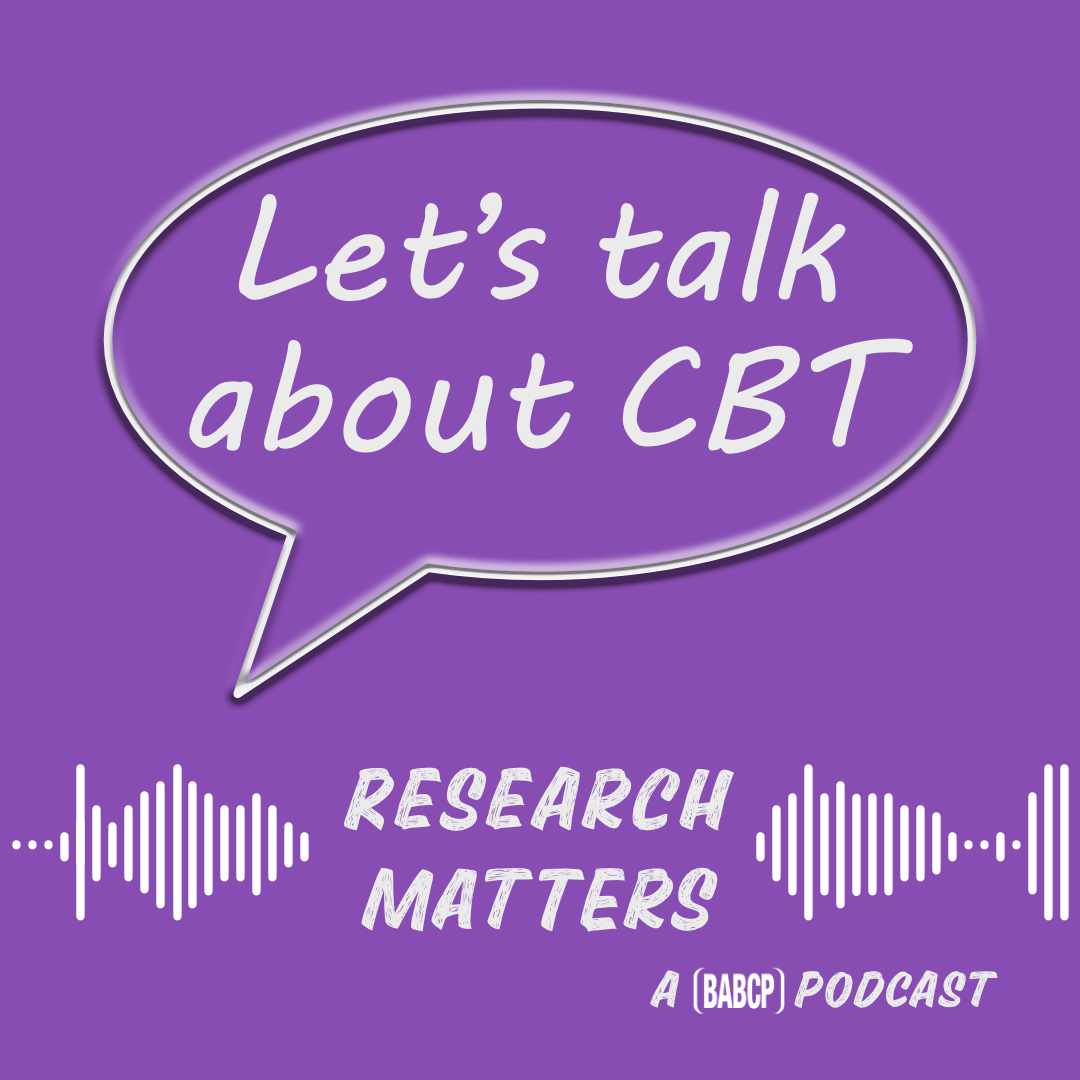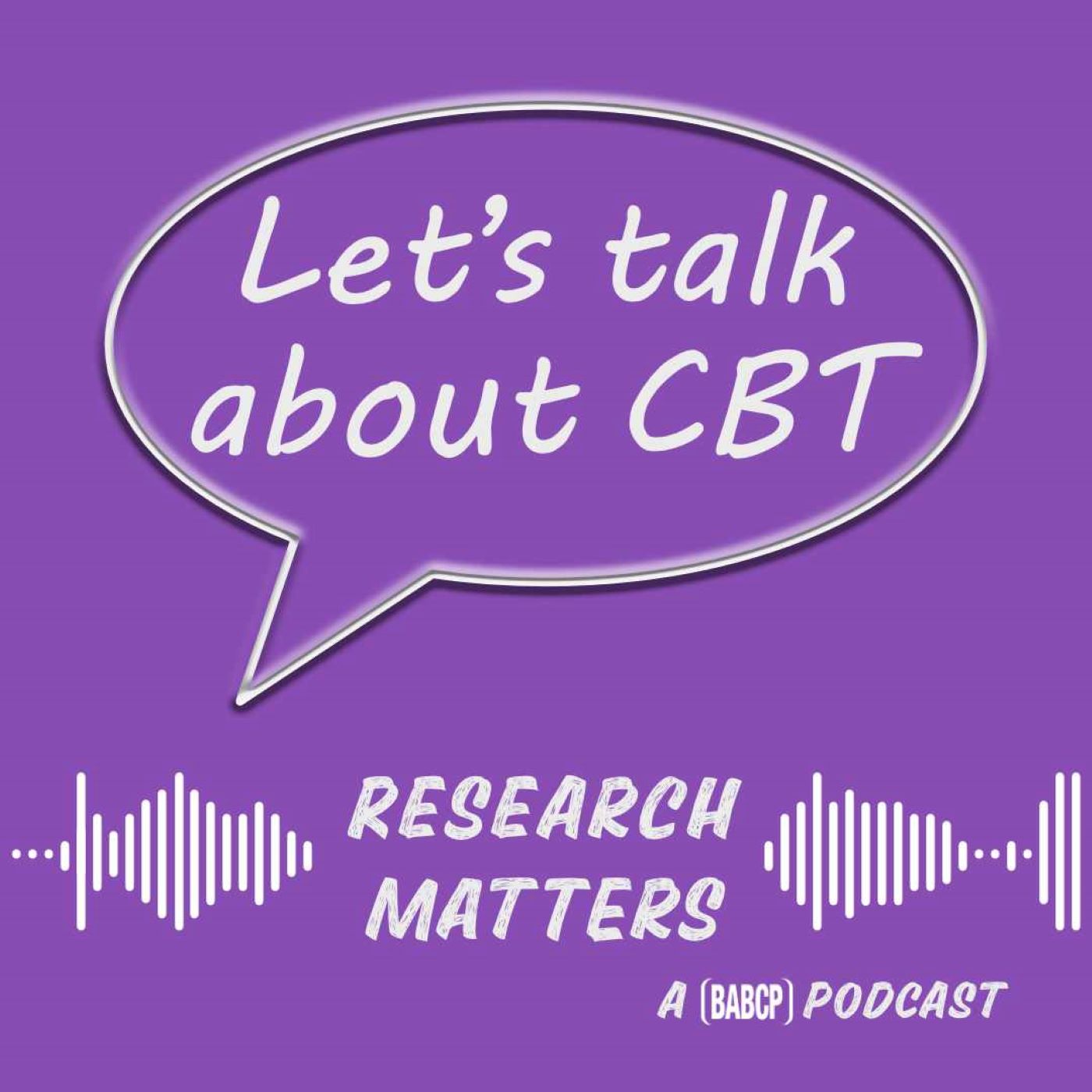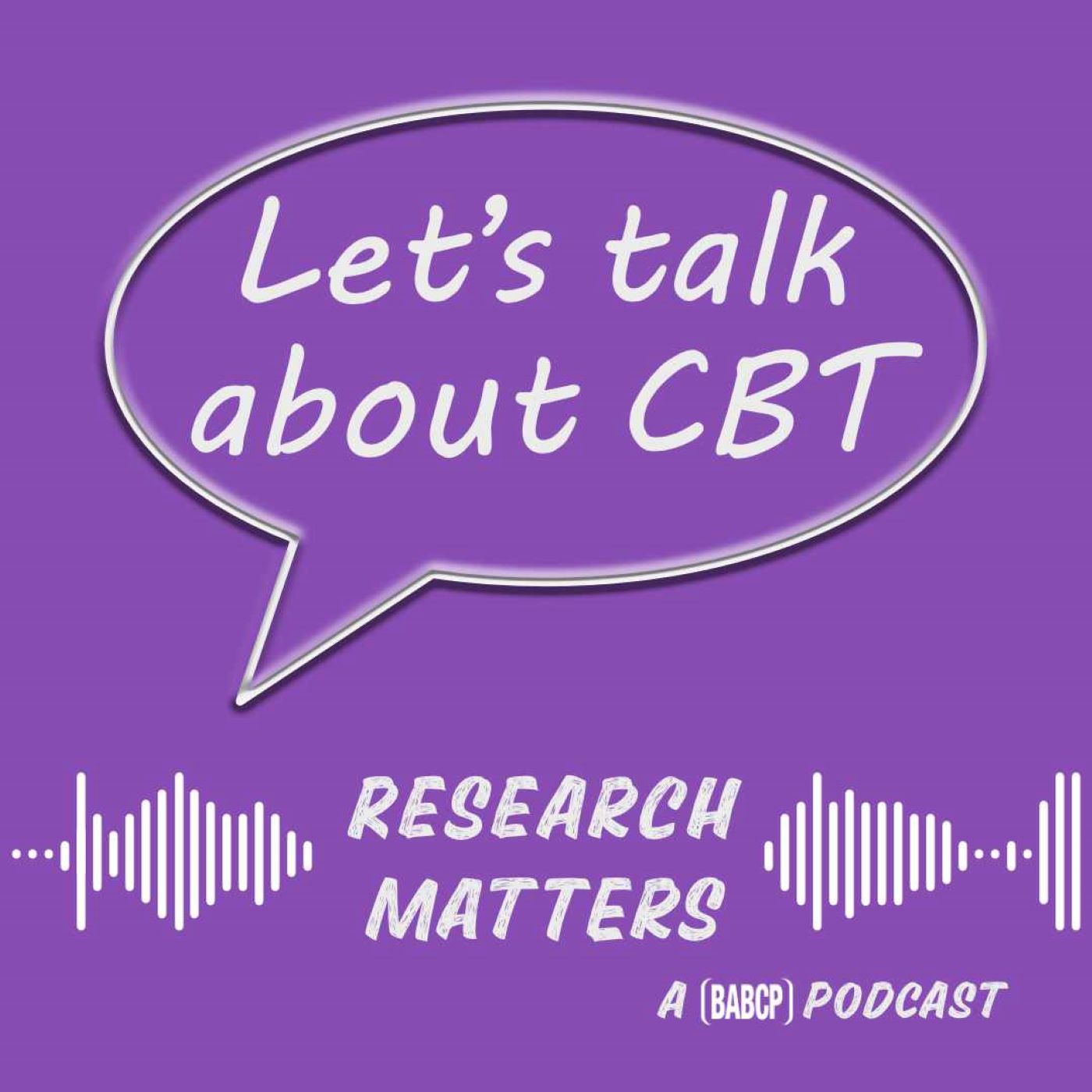‘Crossing the reflective bridge’: how therapists synthesise personal and professional development from self-practice/self-reflection during CBT training...with Vickie Presley
Description
In this episode, host Steph Curnow interviews Vickie Presley, the lead author of a paper titled "Crossing the Reflective Bridge: How Therapists Synthesize Personal and Professional Development through Self-Practice/Self-Reflection (SP/SR) during CBT Training", published in The Cognitive Behaviour Therapist. Vickie shares her insights from the research, discussing the importance of reflective practice in CBT training and how it shapes therapists’ professional growth and personal awareness.
If you enjoyed this episode, please rate, review, and subscribe wherever you get your podcasts. Follow us on Twitter at @BABCPpodcasts or on Instagram . Share your feedback or episode suggestions by emailing podcasts@babcp.com.
Useful links:
The full version of the article being discussed can be found freely available here
The SP/SR book that Vickie mentions is “Experiencing CBT from the Inside Out: A Self-Practice/Self-Reflection Workbook for Therapists (Self-Practice/Self-Reflection Guides for Psychotherapists)” by James Bennett-Levy, Richard Thwaites, Beverly Haarhoff, and Helen Perry. Foreword by Christine A. Padesky
Credits:
Music is Autmn Coffee by Bosnow from Uppbeat
Music from #Uppbeat (free for Creators!): https://uppbeat.io/t/bosnow/autumn-coffee
License code: 3F32NRBYH67P5MIF
Transcript:
Steph: Hello and welcome to Let’s Talk about CBT- Research Matters, the podcast that explores some of the latest research published in the BABCP journals with me Steph Curnow. Each episode, I'll be talking to a recently published author about their research, what was the motivation behind it and how they hope it will impact the world of CBT.
Today, I'm talking to Vickie Presley. Vickie is course director for CBT training at Coventry university. She's also the lead author of the paper “Crossing the reflective bridge’: how therapists synthesise personal and professional development from self-practice/self-reflection during CBT training” which she co-wrote with Gwion Jones and is published in the Cognitive Behaviour Therapist.
Hi, Vickie. Welcome to the podcast.
Vickie: Hi Steph, thanks for having me.
Steph: Thank you. It's lovely to have you here. I was wondering if you would mind telling everyone a bit about who you are and the areas where you work.
Vickie: Yeah, of course. So my name is Vickie, Vickie Presley. I'm currently the lead for psychological therapies training at Coventry University and the course director for our CBT training programme. And I guess outside of my university role, I'm also a CBT therapist and supervisor in private practice. I guess for the purposes of today as well, it'd be important to say I am also Vickie. I am a lady heading quickly towards my 45th birthday. I am a mum. I'm a wife to a long-suffering husband. I'm a sister. I'm an auntie. I'm a great auntie, Lots of things outside of that sort of professional context. And I guess also I'm a nervous wreck today, if I'm honest. I guess just thinking about conveying things around this research, but it just seems important to say that given we're going to talk about sort of how therapists might synthesise their personal and professional development, there's bits about me that might come through today that are about my personal self, not just my professional self.
Steph: Great. Thank you. And that's great that you've sort of brought in some of the personal as well. That's really nice. And I'm always nervous when we start doing podcasts as well. So it's fine. And I've been doing this for a while now.
Vickie: Oh, that's good to know. Thanks, Steph.
Steph: The paper we're going to be talking about today is about self-practice, self-reflection in CBT training but before we get into talking a bit about the paper, would you be able to tell me a bit about how this research came about? What inspired it?
Vickie: Yeah, of course. I mean, I suppose the answer to that question is, one that takes me back, sort of, 15 years or so to my own CBT training. So, I trained at Coventry. Coventry's got quite a long-standing ethos of reflective practice as part of the training course. And for me, I think that allowed me to really think about the role of myself in my therapeutic interactions with clients. And I started to notice as part of my training that I was getting in the way sometimes. So sometimes my own stuff was getting in the way of my work with clients. There's this example that I always give where, I was working with a lady who was very, very depressed, and as part of that presentation she was very perfectionist and held herself to really high standards, which, is something that I have to manage myself. So, there's kind of this schema match, I guess, if you like, that we noticed, and we did some work around that. And technically it was really good. Technically we did this continuum exercise. It worked really well, it was really helpful for her in the session. But right in the last minute, I suggested to her that she took the worksheet home, and she rewrote it because mine was too messy.
And I suppose the whole irony of that, that one statement, which, I mean, I suppose we look back at that and sort of laugh at the irony, but it really had the potential to undo a lot of good work in the session. And that was about my own stuff. So, I really do think that's the point where it started for me, and I started looking at some of the research that was around about therapist perfectionism in particular. I suppose as my career has gone on and I've supervised trainees and qualified staff and obviously I've worked at the university for many years now, we notice the same patterns that therapist’s own stuff will get in the way a lot of the time. So some of my previous papers have focused on areas like therapist perfectionism, like things like experiential avoidance and one of the things we always suggest at the back end of those papers is that therapists get involved in SP/SR so they can get to know themselves a bit better. And I guess that brings us to this paper where we wanted to know whether that was working as part of our own program. And if it is, how trainees experience that, how do they get to know themselves as part of SP/SR and as part of the training process? And how do they make sense of that in a professional context? What meanings and what the experience of synthesising those two parts of themselves is like. So that's how we got here and that's what this paper aims to elucidate in some way.
Steph: And I think that's really important, isn't it? Because when you're really busy training and you're taking in all this new information and then you're putting it into practice, it must be really difficult actually to take that time to think about yourself and to really self-reflect and think about how that might be impacting you.
Vickie: I think it's really difficult and I think, in some ways, it seems more difficult in the CBT model, I think, because lots of the things that we have to teach are quite technical and there's lots of demands on trainees to show technical flair and that they understand quite complex models and ways of working. But that can become, this whole reflection stuff can become sidelined and feel like it's less important. I think my view is that the technical stuff, the technicalities of CBT take place within a relational context, and they take place within the dynamic between two people and if the therapist isn't holding what's their own stuff in that dynamic, that can become problematic.
Steph: Could I ask you to just explain a bit about what is self-practice/self-reflection for anyone who might not be, familiar with the term?
Vickie: Yeah, of course. So, I mean, I suppose the simplest terms, self-practice/self-reflection is about practicing CBT techniques on oneself, so using, the interventions of CBT on oneself and then having time to reflect on what that experience is like. I guess there's a myriad of ways that people can get involved in self-practice/self-reflection but on our training course specifically, we use the text “Experiencing CBT from the inside out”. So that's a well-established text. It's an evidence-based

